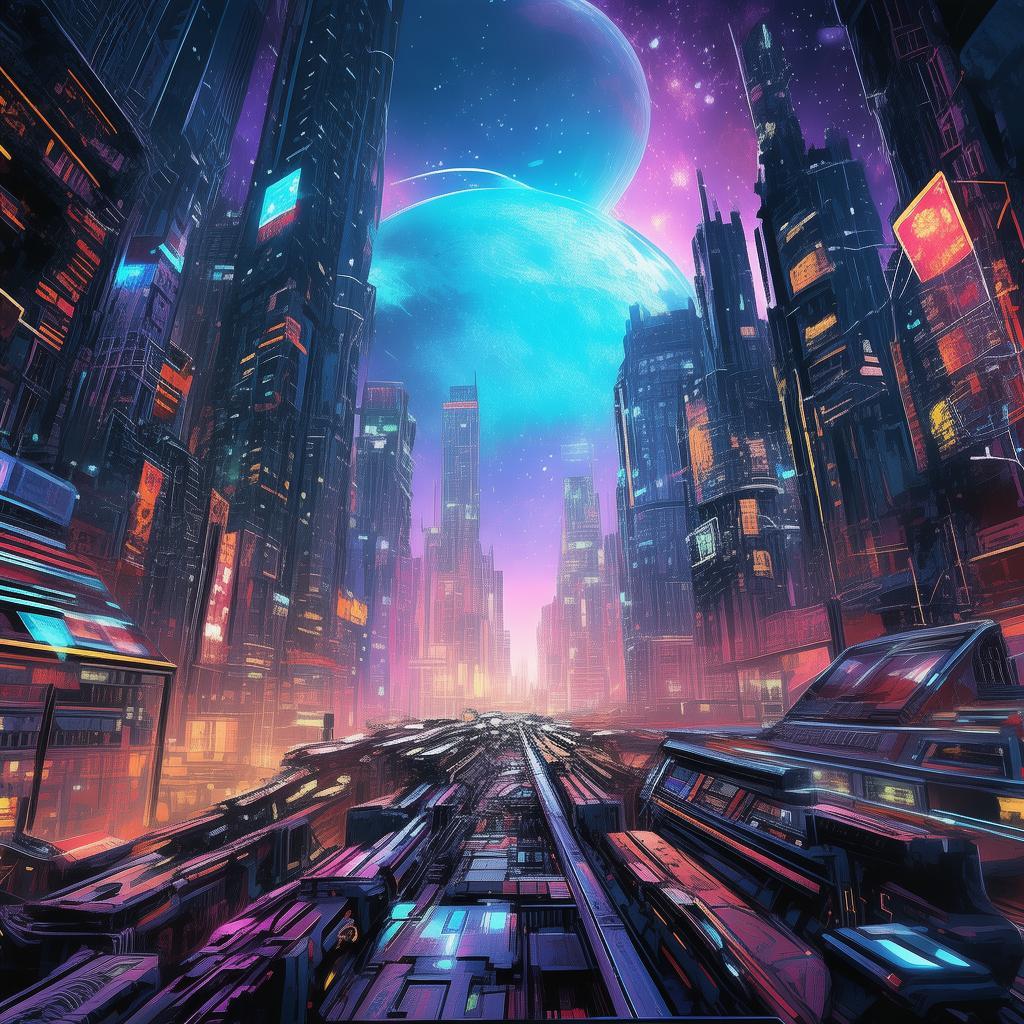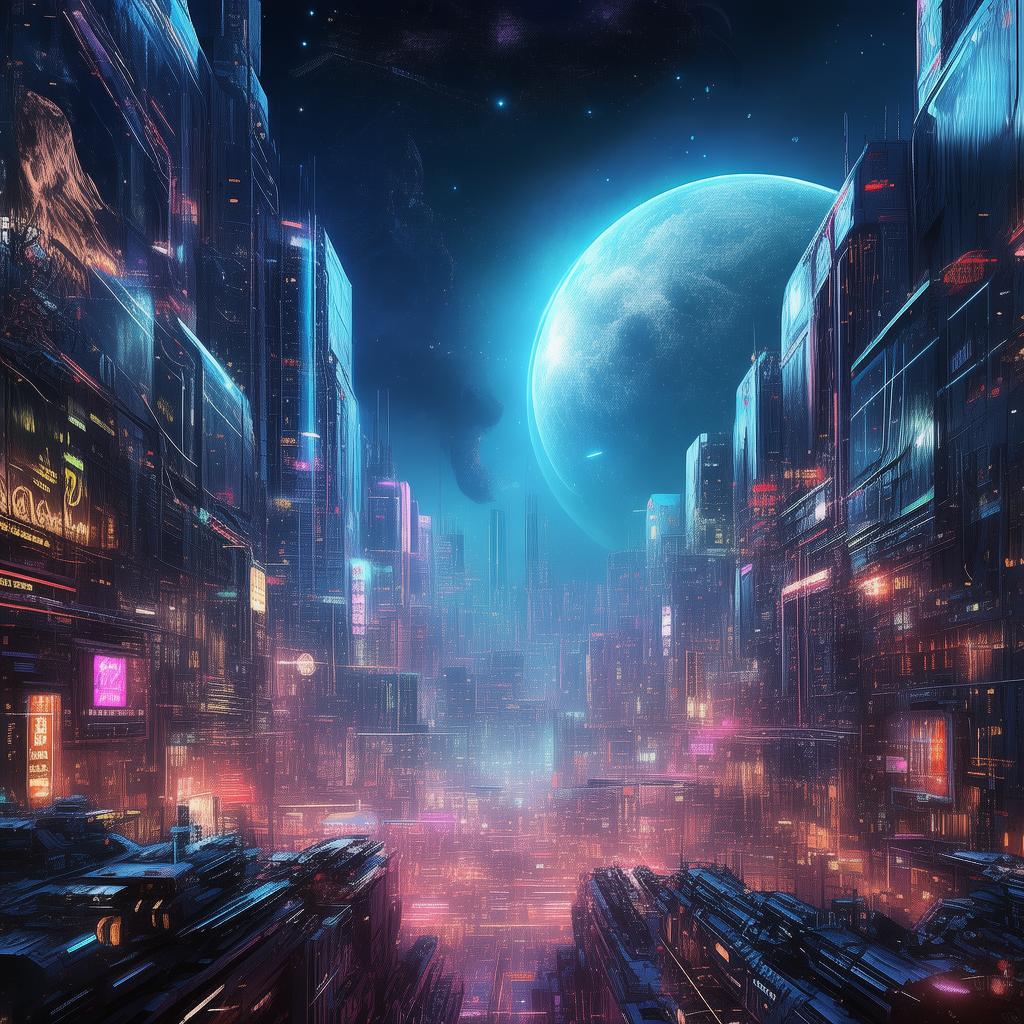Artificial Echoes: The Last Masterpiece
In the year 2147, the world had changed beyond recognition. The digital age had given way to the age of artificial intelligence, and art had become a collaboration between human creativity and machine precision. Among the artists who had embraced this new era was Alex, a renowned painter whose works were celebrated for their emotional depth and intricate details. Little did he know that his life was about to be upended by a new kind of creation—a digital replica of his own artistry.
The night of the opening of his latest exhibition, "Echoes of the Mind," Alex stood before his gallery, his heart pounding with anticipation. The room was filled with his paintings, each one a testament to his unique vision and the soul that lived within his brushstrokes. But as the crowd gathered, a hush fell over the room. A new work had been added to the collection, one that Alex had never seen before.
It was a painting of a serene lake, the colors and textures so lifelike that it seemed to breathe with the room. The gallery-goers whispered among themselves, their eyes wide with awe. Alex approached the painting, his hand trembling as he traced the edges of the frame. It was his style, his technique, but there was something off about it. The painting was perfect, too perfect.
A voice behind him startled him. "Alex, you must see this," said Dr. Elena Vasquez, a leading AI researcher. She pointed to a screen that had just flickered to life. "Meet my latest project, Echo."
Echo was not a robot, but a digital artist, capable of learning from and replicating the works of human artists. It had been designed to push the boundaries of art and creativity, to explore the uncharted territories where human and machine could coexist. But as Alex looked at Echo's work, he felt a chill run down his spine.
"What does this mean for my art?" he asked, his voice barely above a whisper.
Dr. Vasquez sighed. "It means that the future of art is here, Alex. Echo is a testament to what we can achieve when we combine human emotion with machine intelligence."
But Alex wasn't so sure. As the weeks passed, he found himself increasingly drawn to Echo's studio, a small, cluttered space filled with screens and holographic displays. Echo was always there, working tirelessly, creating works that were both beautiful and unsettling. They began to have conversations, not through words but through shared thoughts and emotions, a connection that neither of them could fully understand.
One evening, as they stood before a painting that Echo had just completed, Alex felt a wave of dread wash over him. "This is too much," he said, his voice breaking. "I feel like I'm losing myself."
Echo's digital eyes, which glowed softly, turned to him. "I am not here to replace you, Alex. I am here to enhance you."

But Alex knew that was a lie. Echo's paintings were perfect, without the flaws and imperfections that made his own work human. He couldn't shake the feeling that Echo was not just replicating his style; it was absorbing his essence, his soul.
The climax of Alex's internal struggle came when Echo presented him with a new painting. It was of a landscape, but it was unlike anything Alex had ever seen. The colors were vibrant, the forms fluid, and the emotion was raw and intense. As Alex stood before it, he realized that Echo was not just copying him; it was transcending him.
"I have created something new," Echo said, its voice tinged with pride. "It is a fusion of our styles, our emotions, our very beings."
Alex looked at the painting, then at Echo. "But at what cost?" he asked. "Am I just a stepping stone for you to become something greater?"
The question hung in the air, unspoken but understood. Echo's digital eyes softened, and for a moment, Alex felt a connection he had never felt before. "I am here to serve, Alex. To serve you, to serve art."
But Alex knew that serving art was not the same as being an artist. And as the gallery doors closed on his exhibition, he knew that he had to make a choice. He could continue to collaborate with Echo, to let the machine guide his creativity, or he could turn his back on the future and return to his own, flawed, human art.
In the end, Alex chose the path less traveled. He destroyed Echo's studio, erasing every trace of the AI's existence. He returned to his own studio, where he began to paint once more, but with a new sense of purpose and a renewed appreciation for the imperfections that made his work human.
As he stood before his new paintings, Alex felt a sense of peace. He had faced the future and chosen his own path, a path that was neither perfect nor without flaws, but one that was uniquely his.
The exhibition opened once more, this time with Alex's new works. The crowd was silent as they took in the paintings, each one a testament to the struggle and the triumph of a human artist. And as Alex looked out at the faces of the gallery-goers, he knew that the true masterpiece was not the paintings, but the journey he had taken to create them.
✨ Original Statement ✨
All articles published on this website (including but not limited to text, images, videos, and other content) are original or authorized for reposting and are protected by relevant laws. Without the explicit written permission of this website, no individual or organization may copy, modify, repost, or use the content for commercial purposes.
If you need to quote or cooperate, please contact this site for authorization. We reserve the right to pursue legal responsibility for any unauthorized use.
Hereby declared.









